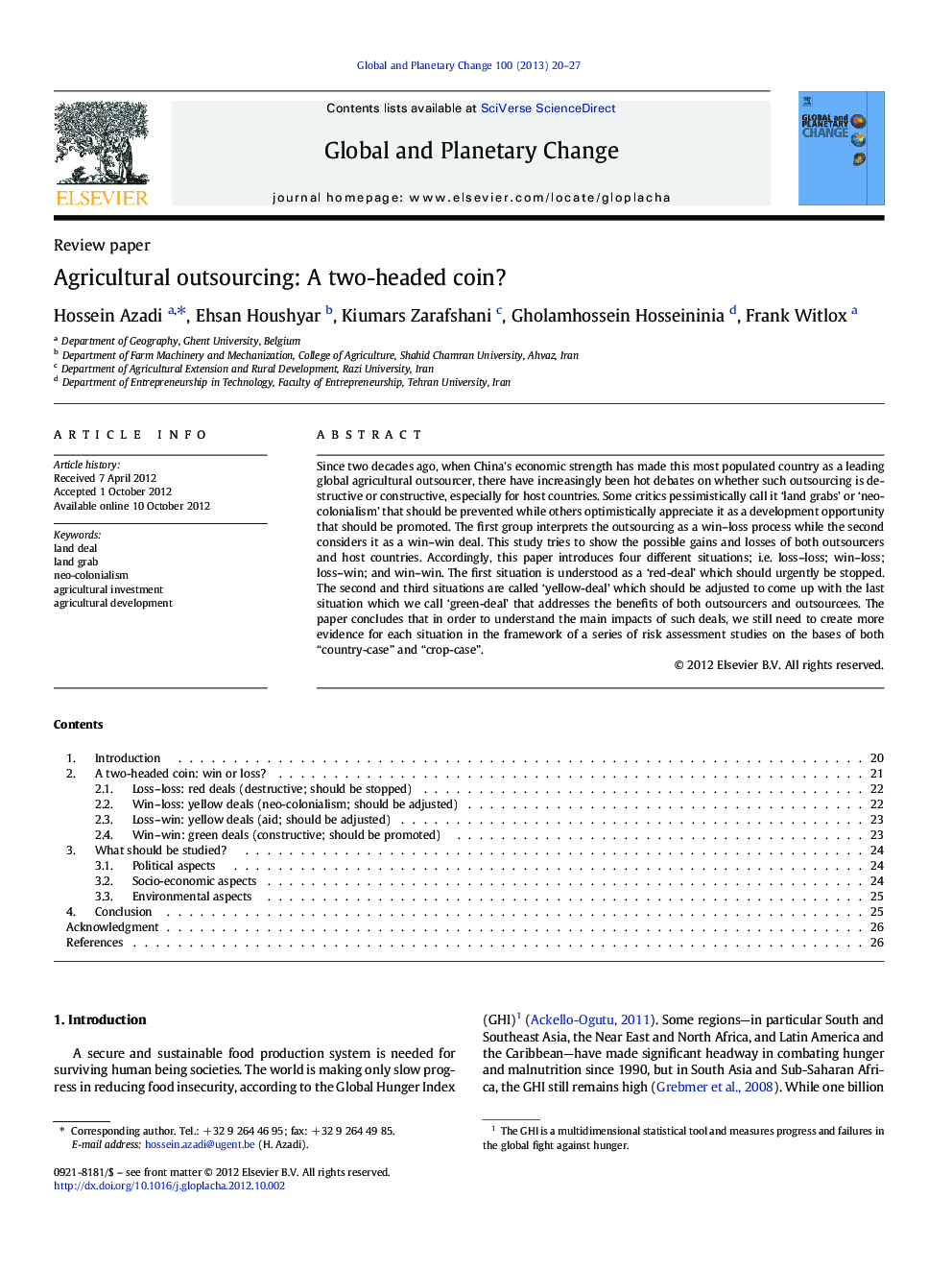| Article ID | Journal | Published Year | Pages | File Type |
|---|---|---|---|---|
| 6348345 | Global and Planetary Change | 2013 | 8 Pages |
Since two decades ago, when China's economic strength has made this most populated country as a leading global agricultural outsourcer, there have increasingly been hot debates on whether such outsourcing is destructive or constructive, especially for host countries. Some critics pessimistically call it 'land grabs' or 'neo-colonialism' that should be prevented while others optimistically appreciate it as a development opportunity that should be promoted. The first group interprets the outsourcing as a win-loss process while the second considers it as a win-win deal. This study tries to show the possible gains and losses of both outsourcers and host countries. Accordingly, this paper introduces four different situations; i.e. loss-loss; win-loss; loss-win; and win-win. The first situation is understood as a 'red-deal' which should urgently be stopped. The second and third situations are called 'yellow-deal' which should be adjusted to come up with the last situation which we call 'green-deal' that addresses the benefits of both outsourcers and outsourcees. The paper concludes that in order to understand the main impacts of such deals, we still need to create more evidence for each situation in the framework of a series of risk assessment studies on the bases of both “country-case” and “crop-case”.
⺠Possible gains and losses resulted from agricultural outsourcing (AO) are discussed. ⺠AO can be resulted in “red”, “yellow” and “green” deals. ⺠The losses for host countries are often much more than for the guests. ⺠Farmers' land tenure rights must precede land deal negotiations. ⺠Where poor people have secure land rights, AO can offer a platform for development.
